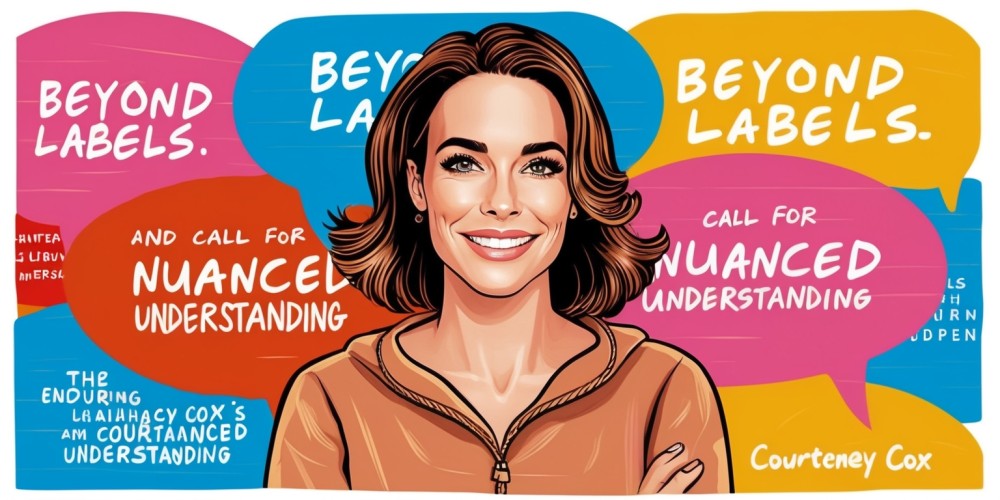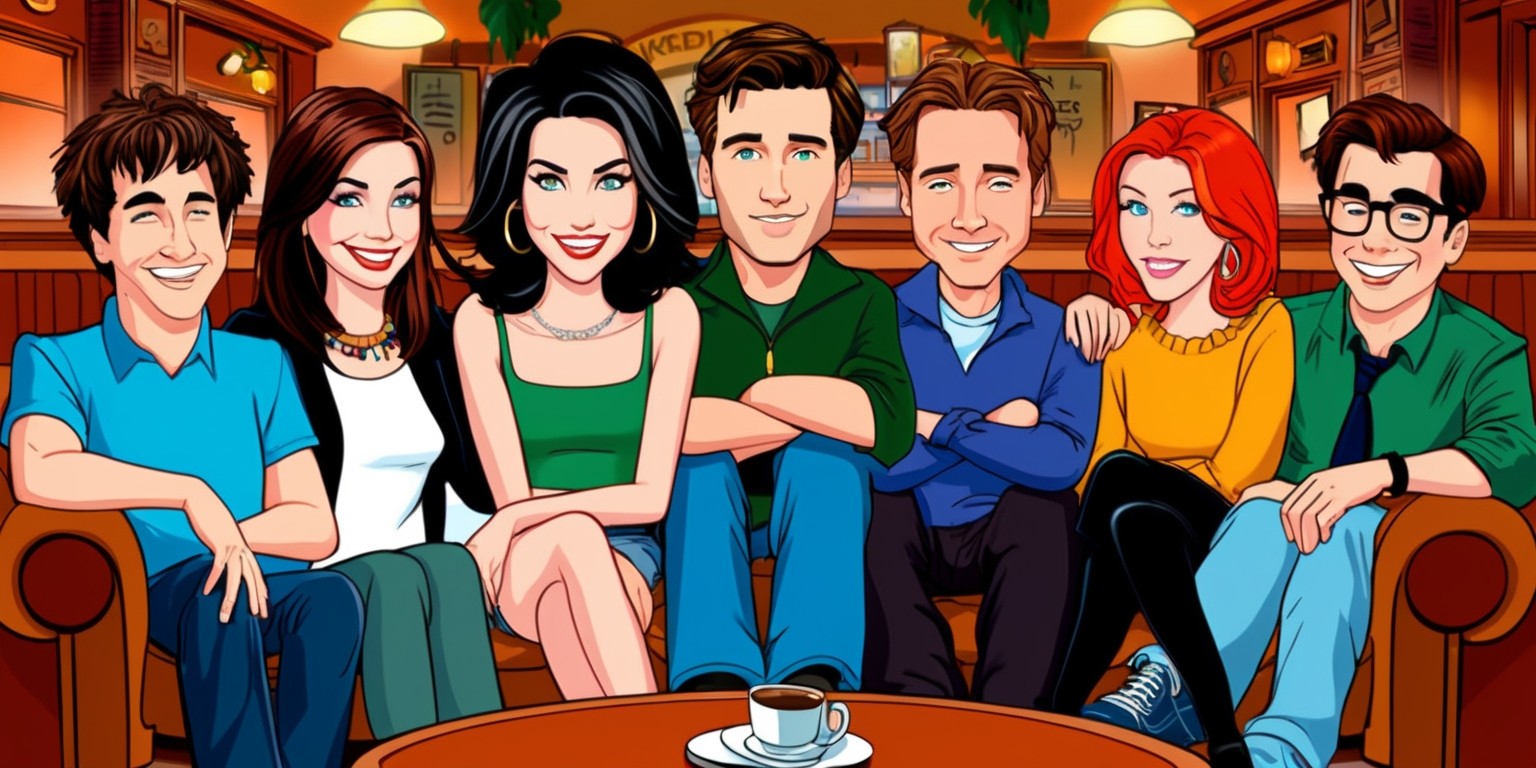Beyond Labels: The Enduring Legacy of FRIENDS and Courteney Cox's Call for Nuanced Understanding
- 0

Since it first aired in 1994, FRIENDS has captivated the hearts of millions, but its legacy has not been without controversy. The iconic sitcom, which introduced audiences to the lives of six eclectic friends steering through the challenges and triumphs of adult life, has often been the subject of sweeping generalizations by media and fans alike. Courteney Cox, who portrayed the lovable Monica Geller, has been particularly open in expressing her discontent regarding how the industry has categorized both the show and its fans. As the conversation around the show's cultural significance evolves, it's intriguing to dive deeper into the reasons behind Cox’s criticisms, the legacy of FRIENDS, and the memories that still linger long after the series finale.
Courteney Cox's Standing on Generalizations
For Cox, the branding that simplified the FRIENDS fandom into a single 'Generation X' label was a frustrating accuracy that sometimes did not capture the essence of the show. She expressed in interviews how such labels often diminish the complexity and individuality of both fans and characters, painting them with an overly broad brush.
The Genesis of FRIENDS
When FRIENDS premiered in the mid-90s, it quickly became a cultural phenomenon unlike any other. The ensemble cast, which included Jennifer Aniston, Matt LeBlanc, and others, offered a refreshing take on friendships and relationships, resonating with diverse audiences. However, from the get-go, the association with 'Generation X' often led to misunderstandings about the show’s true themes.
Character Depth vs. Simplistic Labels
Cox elaborated on how labels like Generation X render the characters of Monica, Ross, Chandler, Joey, Phoebe, and Rachel as one-dimensional characters without acknowledging their nuanced stories. This sentiment was echoed by the show's creators, who deliberately endeavored to steer clear of such pigeonholing.
The Evolution of Generational Labels

Originally introduced in the early 1990s, the term Generation X was birthed from Douglas Coupland's novel, which described a group of disaffected youth. Although it is often utilized to describe a generation that appears indifferent or directionless, the FRIENDS characters showcased aspirations, dreams, and emotional complexities that contradicted this stereotype.
Cast Reactions to Generation X Stereotypes
Alongside Cox, the entire FRIENDS cast has candidly expressed their grievances about the Generation X label. Matt LeBlanc famously criticized it for implying laziness, while Jennifer Aniston referred to it as derogatory and misaligned with the sitcom’s rich narrative. The repeated mention of avoiding such labels became a common thread among the cast's discussions.
Monica and Chandler: A Love Story Beyond Labels
One of the standout details of FRIENDS was the evolving relationship between Monica and Chandler. Initially presented as platonic friends, their relationship blossomed into one of the most beloved romances on television. Their profound connection is a testament to the show’s deeper themes, diverting attention from surface-level labels.
A Lasting Friendship in Real Life
Beyond just characters, Cox developed a close friendship with Matthew Perry, who played Chandler Bing. Their bond extended beyond the screen, with mutual respect and camaraderie resonating through their performances. The rich friendship they cultivated significantly enhanced their on-screen chemistry, breathing life into their characters’ love story.
The Impact of Matthew Perry's Passing
The unexpected passing of Perry in October 2023 left a profound impact on Cox and the entire FRIENDS family. In the wake of this tragedy, she has reflected on their shared experiences, expressing a deep sense of gratitude for having shared moments both on and off set.
<h2>Shared Memories and Fondness
In interviews post-Perry’s passing, Cox reminisced about their time together, recalling his infectious sense of humor. She described him as “one of “the most hilarious individuals on the planet” and expressed how their friendship was one of the highlights of her career.
Belief Beyond the Physical
Cox also shared a touching sentiment about Perry, saying that she continues to feel his spirit around her, even after his death. This supernatural bond is an endearing portrayal of the lasting influence he exerted on her personal and professional journey.
Cultural Significance of FRIENDS
The cultural landscape surrounding FRIENDS has transformed, especially with newer generations, making it a topic of both nostalgia and fresh perspectives. Many viewers today, particularly millennials and Gen Z, consume the show without necessarily categorizing it alongside generational labels, allowing for a more individualized interpretation.
Fans: A Diverse and Unique Community
The FRIENDS fandom has grown over the years, evolving into a diverse community that transcends age and background. The show’s appeal lies in its overarching motifs of affection, companionship, and individuality growth, making it relatable for diverse audiences around the globe.
Lingering Questions about Stereotypes
As discussions surrounding generational categorization continue, the overarching question remains: can labels ever truly encapsulate the essence of an individual or a community? The simplistic notion of categorizing FRIENDS fans into a singular label fails to account for the multitude of experiences and emotions they collectively embody.
Revisiting FRIENDS Today
For many, revisiting FRIENDS is about reliving cherished moments, laughter, and deep connections that were beautifully woven into each episode. Streaming platforms have allowed a new generation to discover the show, often viewing it through a fresh lens devoid of outdated labels.
Conclusion: A Legacy That Transcends Labels
Ultimately, the legacy of FRIENDS far exceeds the limitations imposed by generational tags. Courteney Cox’s criticism of these categorizations serves as a reminder that every character, every story, and every fan brings their own unique narrative to the larger tapestry of the show. As the conversations surrounding FRIENDS continue to evolve, it stands firm as a proof of the lasting strength of camaraderie and love that knows no bounds. Fans can relive those unforgettable moments and cherish the friendships formed both on and off the set by revisiting all the seasons available for viewing.
